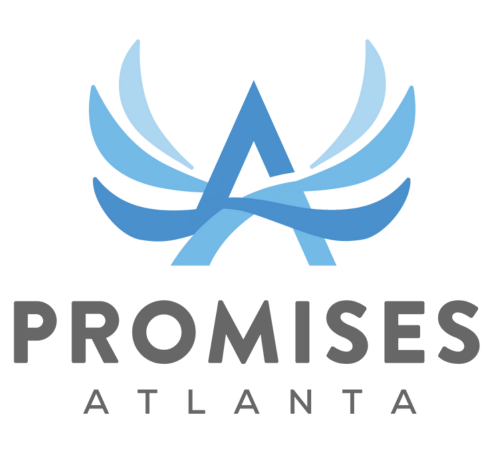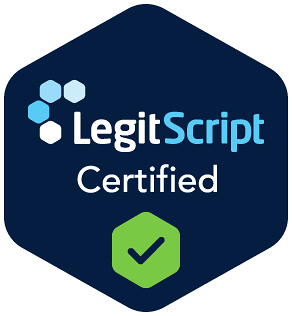It can be tough to watch someone you care about struggle with something that’s hard to understand. Gaming may seem like a hobby, but for some, it becomes a serious concern affecting health, relationships, and daily life. If you’re looking for ways to help, you’re already taking a brave and loving step.
Promises Atlanta provides comprehensive addiction and mental health support, including help for those struggling with gaming addiction. We understand that gaming addiction often intertwines with mental health challenges such as anxiety, depression, or stress, and may sometimes co-occur with other forms of addiction. Recovery isn’t just about stepping away from the screen—it’s about addressing the underlying issues, restoring balance, and fostering connection and purpose.
What is gaming addiction?
Gaming addiction is when someone plays video games so much that it starts to harm their life. It might get in the way of school, work, sleep, or time with family and friends. Gaming can be an enjoyable and healthy pastime when done in moderation. However, it becomes an addiction when it starts to dominate your life, making it difficult to control even as it leads to negative consequences.
Signs and symptoms of gaming addiction
Identifying the signs of gaming addiction is a crucial first step. Below are some common symptoms to watch for:
- Spending most free time gaming
- Skipping meals, sleep, or other activities to play
- Getting angry or anxious when not allowed to play
- Falling behind in school or work
- Pulling away from family and friends
- Lying about how much time is spent gaming
If these signs sound familiar, your loved one may need support for gaming addiction recovery.
Causes of gaming addiction
Psychological factors
Many people turn to games to cope with stress, anxiety, depression, or loneliness. The escape and excitement games offer can feel comforting, but this coping method can become a harmful pattern over time.
Social influences
Online games often create strong social connections. For some, friendships formed in games feel more real or safer than real-world relationships. Peer pressure to keep playing can also make it hard to step away.
Biological components
Gaming can release brain chemicals like dopamine, which make people feel good. This “reward” feeling can become addictive over time, especially for those with certain genetic or mental health risk factors.
The impact of gaming addiction
Effects on mental health
Gaming addiction can lead to:
- Increased anxiety or depression
- Trouble focusing or sleeping
- Low self-esteem or motivation
As mental health worsens, gaming often becomes a way to avoid feelings, creating a harmful cycle.
Physical health consequences
Too much time gaming can affect the body, too. Common concerns include:
- Poor posture and back pain
- Eye strain or headaches
- Lack of exercise
- Irregular sleep schedules
Social and relationship impacts
Gaming addiction often causes people to pull away from those who care about them. Missed meals, skipped events, or constant arguments over screen time can strain even the closest relationships.
Approaches to gaming addiction treatment
Professional counseling and therapy
Getting help from a trained professional can make a huge difference. At Promises Atlanta, our gaming addiction treatment plans are designed with both individuals and families in mind.
Cognitive-behavioral therapy (CBT)
CBT helps people understand the thoughts and feelings that lead to excessive gaming. It teaches healthy ways to manage stress and emotions.
Family therapy
Family therapy allows everyone to talk, understand each other, and work together toward healing. It’s especially helpful when gaming has affected relationships.
Support groups and community resources
Peer groups can offer encouragement, understanding, and hope. Hearing from others who’ve faced similar struggles can help people feel less alone and more motivated to change.
Digital detox strategies
Taking a break from screens—also called a digital detox—can help reset unhealthy habits. This might include screen-free weekends, time limits, or replacing gaming with new activities.
Supporting a loved one with gaming addiction
Communicating effectively
Talk calmly and without judgment. Use “I” statements, like “I’m worried about how much time you’re spending online.” Avoid yelling or blaming, which can make your loved one shut down.
Setting healthy boundaries
It’s okay to set rules around screen time, shared spaces, or responsibilities. Be clear and consistent, and explain why these boundaries matter for everyone’s well-being.
Encouraging professional help
Let your loved one know that it’s okay to ask for help, and that video game addiction help is available. Offer to go with them to an appointment or help them find a therapist or treatment program.
Providing emotional support
Let them know you care, even when things feel hard. Celebrate small wins, praise progress, and remind them that change is possible.
Overcoming gaming addiction: A personal journey
Developing new hobbies and interests
Helping someone find joy in other areas of life can reduce their need to game. This could be sports, music, art, volunteering, or spending time in nature.
Building a balanced lifestyle
A healthy routine that includes sleep, meals, school or work, and downtime creates structure and reduces the need to escape into games.
Celebrating milestones in recovery
Recovery takes time, and every step forward matters. Celebrate progress—like spending a day without gaming or reconnecting with friends—as a sign of strength.
Resources for gaming addiction recovery
Online support communities
- Game Quitters (gamequitters.com): One of the largest online communities for people struggling with video game addiction. Offers forums, courses, and a podcast for individuals and families.
- Online Gamers Anonymous (OLGA) (olganon.org): A 12-step-style support group for individuals and families affected by gaming addiction.
Books and educational materials
- “The Power of Habit” by Charlie Duhigg
- “The Slight Edge” by Jeff Olson
- “Hooked” by Nir Eyal
- “In The Realm of Hungry Ghosts” by Gabor Maté
Professional organizations and helplines
- Promises Atlanta: Offers compassionate, evidence-based gaming addiction treatment, including therapy, digital detox, and family support. Call now or reach out online at 888.488.6303
- Mental Health America (MHA): Provides resources, screening tools, and information on co-occurring mental health conditions.
- Substance Abuse and Mental Health Services Administration (SAMHSA):
- Helpline: 1-800-662-HELP (4357) – A free, 24/7 confidential helpline for treatment and referral.
These resources can offer valuable guidance and connection for those working to overcome gaming addiction, whether you’re seeking help for yourself or supporting someone you care about.
Find gaming addiction support at Promises Atlanta
You’re not alone in this. If your loved one is struggling with gaming addiction, we’re here to help. Gaming addiction can take a serious toll on mental health, leading to issues like anxiety, depression, and social isolation. Over time, it may even increase the risk of developing other addictions as a way to cope.
At Promises Atlanta, we provide expert care, including counseling, family therapy, and more. Our team understands how difficult this journey can be—and how hopeful recovery can become. Call Promises Atlanta at 888.488.6303 or reach out online today to learn more about our personalized treatment plans for gaming addiction and mental health support.




